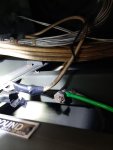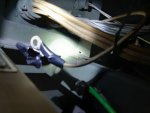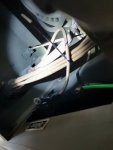I believe you need permits and an Electrician to do this. If not the electrician (assuming you are one), you still need permits. At 10kW 120V you are basically talking about standard 100Amp service. there is plety of energy there to start fires or kill if not done correctly.
There are NEC requirements that must be met for even off-grid systems inside of county/city Authority Having Jurisdiction (AHJ), you don't want to wing it and then find out your insurance doesn't cover an electrocution or fire after the fact.
For any system NEC says you will need to ground at the point of generation. For metered homes with a transformer on the pole, NEC says the meter is the point of generation and that's where the ground/neutral bond goes. If you are running the generator as your only source of power for this installation, you need to ground at the generator as close to the neutral bond as is possible (there is usually a case bolt for ground that civilians are ignorant of). This makes the GFCI (if equipped) work correctly since all current that leaves the generator comes back on the current carrying conductors (Line/Neutral), anything that doesn't come back on those is assumed to be lost to ground and anything at 6mA or more should trip GFCI. You may not have more than ONE ground/neutral bond in any system - this causes current to be split between the ground and neutral wires (BAD!!!!!!).
Keep in mind that if you have more than one source of generation (pole/grid power, generator) the NEC codes are not just there for you and your friends/family/guests, think about that poor guy on the pole at 3am who just needs to finish this one job before going home to his new wife and baby - winging it is not allowed specifically for that.
If you are not an electrician, and you don't have permits for this (in an actual taxable home, and this is basically any home in the US) STOP!!!!!
You know enough to ask for help, here's your help - don't get fined because you didn't have a permit or electrician do the work. It sucks, but electricians know the AHJ rules and practices, if you can find an electrician buddy to help with the design BEFORE you get the permits, and the installation AFTER you get the permits, and be around during the INSPECTION, you're better off.
Fines for unpermitted work start in the low $1,000s in most areas, and lawsuits for personal injury or wrongful death due to gross negligence start in the high 100,000s.
Be safe.




